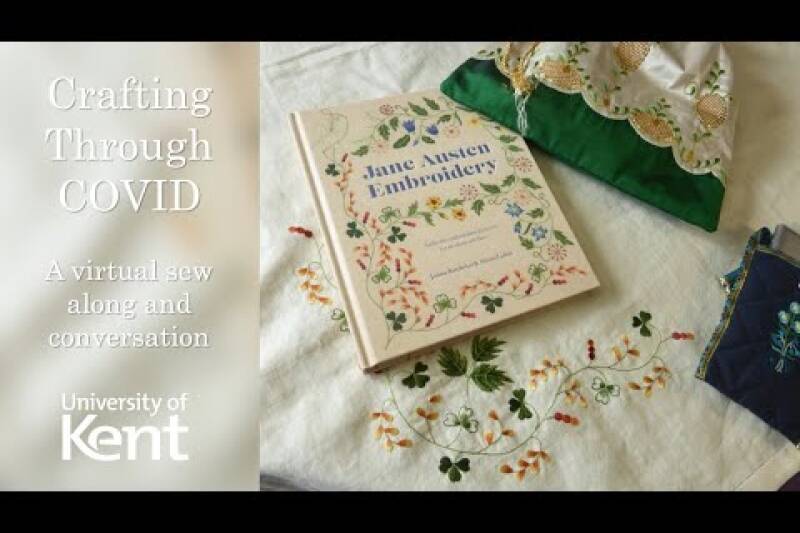Jenni Batchelor, Professor of Eighteenth Century Studies at the School of English, describes how authentic and mutual dialogue has enriched her research and given joy to many.
In 2015 I received a phone call in my office. The caller had read a blog post I had written for a Leverhulme funded research project on ‘Lady’s Magazine’ (1770-1832), the first modern women’s magazine.
The project commenced in 2014, but my fascination with the publication began 15 years earlier when researching it for a chapter of my PhD thesis on 18th-century dress. I spent 3 months poring over the magazine’s fashion plates, reports and essays on dress, but was frustrated that I couldn’t write about its patterns for embroidering clothes, accessories and household objects. Over 650 were issued and, collectively, they constitute one of the largest archives pertaining to women’s domestic needlework. But I hadn’t been able to write a word about them because the patterns had been removed from the copies of magazine I had seen in libraries up and down the UK.
And then came the phone call. The caller had read the blog and wondered if I wanted to buy a ‘tatty’ volume of the magazine from 1796 she had acquired years earlier. To my delight, I found that it contained 6 intact patterns. I posted these to the project’s social media channels and was overwhelmed with the response from people who wanted to know how the patterns were executed (they were published without instruction) and how stitchers today could make them.
I published the patterns on a website and launched a non-competitive ‘Stitch Off’. Experienced and novice stitchers, textile artists and professional embroiderers across 3 continents recreated the patterns using historically faithful, modern, and mixed-media methods. I subsequently curated a room of many of these needleworks at an exhibition to celebrate the 200th anniversary of Jane Austen’s ‘Emma’ (1816). It was a fitting tribute to a novel that has much to say about women’s accomplishments, especially since Jane Austen – an excellent needlewoman herself – read and found inspiration in the ‘Lady’s Magazine’.
Fast forward 5 years and – thanks to the Stitch Off’s profile – I now own 60+ patterns. I have also produced with Alison Larkin, a professional embroiderer who was the first person to respond to the Stitch Off, a history/craft book called ‘Jane Austen Embroidery’ (Pavilion 2020). The book took on particular resonance during the pandemic as more people turned to crafting for their mental wellbeing, an issue I am currently pursuing in new research projects.
None of this would have happened without the project blog and its associated social media. My research has always been public facing, but it was especially important to me that this project was. The ‘Lady’s Magazine’ was filled with original content provided by an international community of reader-contributors who wrote to each other and debated topical items. My goal was to capture something of this community using modern media. I have gained much in the process, from leads to identifying contributors, to sourcing lost issues and establishing a better understanding of the dynamics of virtual community. The Stitch Off taught me so much out about the magazine’s readers and the realities of Georgian women’s embroidery, as well as giving me the confidence to carry out my own practice-based research.
Too often public engagement is seen as one-way traffic. It is not. Public engagement in research is always a learning experience. It has enriched and expanded my work in so many unanticipated ways.
Jennie Batchelor is Professor of Eighteenth-Century Studies in the School of English. She has published widely and regularly gives public talks and workshops and interviews on eighteenth-century women’s writing, history and work, material culture and magazines. Her new book, ‘The Lady’s Magazine (1770-1832)’ and the ‘Making of Literary History’ will be published by Edinburgh University Press in 2021.
You can find out more about the Lady’s Magazine Project here:
Blog: https://blogs.kent.ac.uk/ladys-magazine/
Twitter: @ladysmagproject
Facebook: https://www.facebook.com/ladysmagproject/
Website:
The Lady’s Magazine (1770-1818): Understanding the Emergence of a Genre


